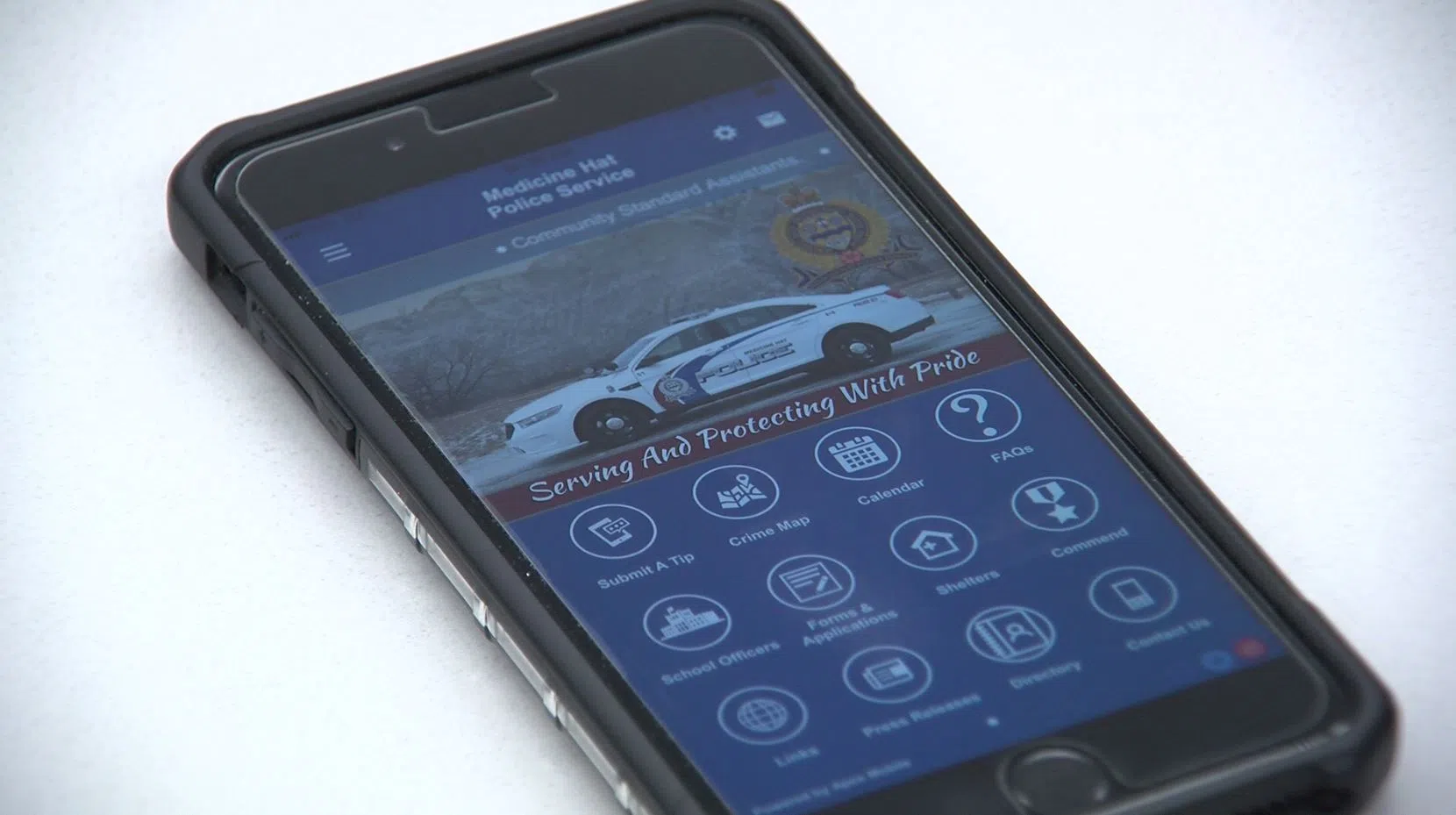
MHPS looking to develop mobile app
MEDICINE HAT, AB — The Medicine Hat Police Service is looking at a new way of communicating with the public.
A new mobile app is in the works, which would get information from the service, right to your fingertips.
The idea was presented during the police commission meeting Thursday night.
